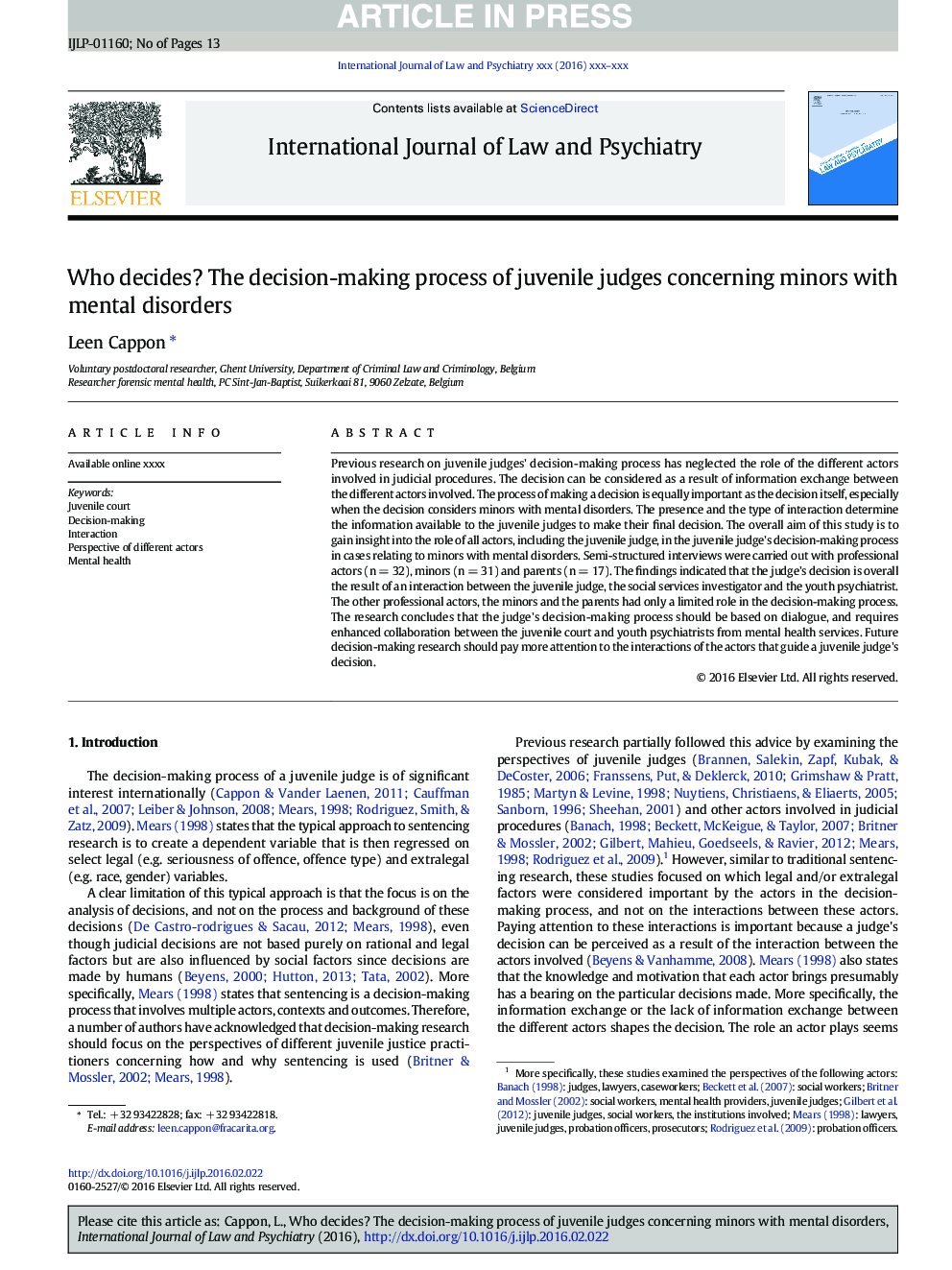| Article ID | Journal | Published Year | Pages | File Type |
|---|---|---|---|---|
| 6554596 | International Journal of Law and Psychiatry | 2016 | 13 Pages |
Abstract
Previous research on juvenile judges' decision-making process has neglected the role of the different actors involved in judicial procedures. The decision can be considered as a result of information exchange between the different actors involved. The process of making a decision is equally important as the decision itself, especially when the decision considers minors with mental disorders. The presence and the type of interaction determine the information available to the juvenile judges to make their final decision. The overall aim of this study is to gain insight into the role of all actors, including the juvenile judge, in the juvenile judge's decision-making process in cases relating to minors with mental disorders. Semi-structured interviews were carried out with professional actors (n = 32), minors (n = 31) and parents (n = 17). The findings indicated that the judge's decision is overall the result of an interaction between the juvenile judge, the social services investigator and the youth psychiatrist. The other professional actors, the minors and the parents had only a limited role in the decision-making process. The research concludes that the judge's decision-making process should be based on dialogue, and requires enhanced collaboration between the juvenile court and youth psychiatrists from mental health services. Future decision-making research should pay more attention to the interactions of the actors that guide a juvenile judge's decision.
Related Topics
Health Sciences
Medicine and Dentistry
Forensic Medicine
Authors
Leen Cappon,
